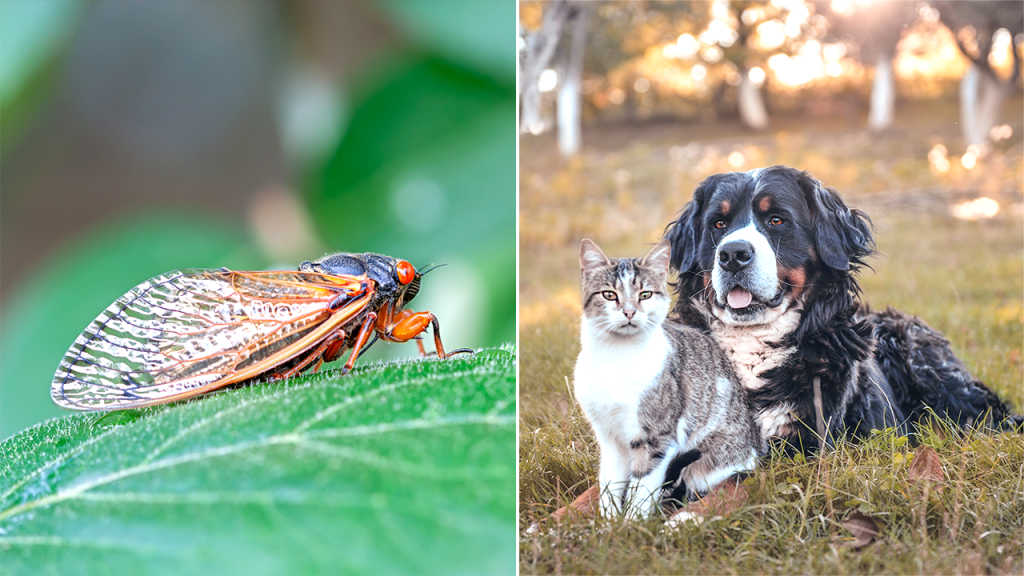The U.S. is currently experiencing a significant cicada comeback, with two broods expected to reappear in multiple states, numbering in the trillions. While these insects swarm and shed their exoskeletons this season, pet owners may be concerned about the potential impact on their animals. According to Amanda Fredal, a licensed veterinary technician, cicadas are generally not toxic to pets. However, consuming a large quantity of cicadas or having an allergy to them could lead to gastrointestinal upset or allergic reactions in pets. It is essential to monitor pets for any symptoms of distress and consult a veterinarian if there are concerns.
Fredal highlighted the symptoms of gastrointestinal upset in pets, including vomiting, diarrhea, abdominal pain, and decreased appetite. Signs of an allergic reaction can include itching, redness, swelling, and difficulty breathing, among others. In severe cases, pets may experience respiratory distress, tremors, seizures, or disorientation if they have a severe reaction to cicadas. Owners are advised to closely monitor their pets if they ingest a cicada, regardless of allergies or symptoms of distress, and contact a veterinarian if necessary.
To prevent pets from consuming cicadas, owners are advised to supervise their animals closely while outdoors and use deterrents or barriers to keep the insects out of reach. Offering engaging toys and activities indoors can also help redirect pets’ attention away from cicadas. Fredal suggested trimming back vegetation where cicadas congregate, keeping grass short, and using insect repellents or traps designed to deter the insects. Pet owners should supervise their animals when outdoors and discourage scavenging to protect them from potential harm.
Pets with sensitive stomachs, dietary restrictions, or shellfish allergies may be more sensitive to cicadas than others, according to Fredal. Other animals, such as poultry, waterfowl, reptiles, fish, and exotic mammals, are likely to consume cicadas as a high-protein source. Pest removal expert Ryan Fowley described cicadas as relatively harmless, noting that they do not bite or sting and are safe for pets to eat in their infancy. However, larger adults with crunchy exoskeletons could pose a choking hazard to pets. Despite the potential risks, cicadas are not harmful to humans, plants, or crops, and efforts to completely remove them from yards are impractical.
Cicadas are known for producing mating calls that can exceed 100 decibels, making them loud enough to rival the noise of a jet plane during takeoff. These insects have black bodies measuring about 1.5 inches long with wingspans of about 3 inches. While the presence of cicadas may be disruptive, they are generally harmless and play a valuable role in the ecosystem. For more information on lifestyle topics, visit www.foxnews.com/lifestyle.


